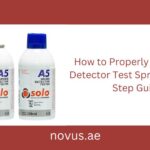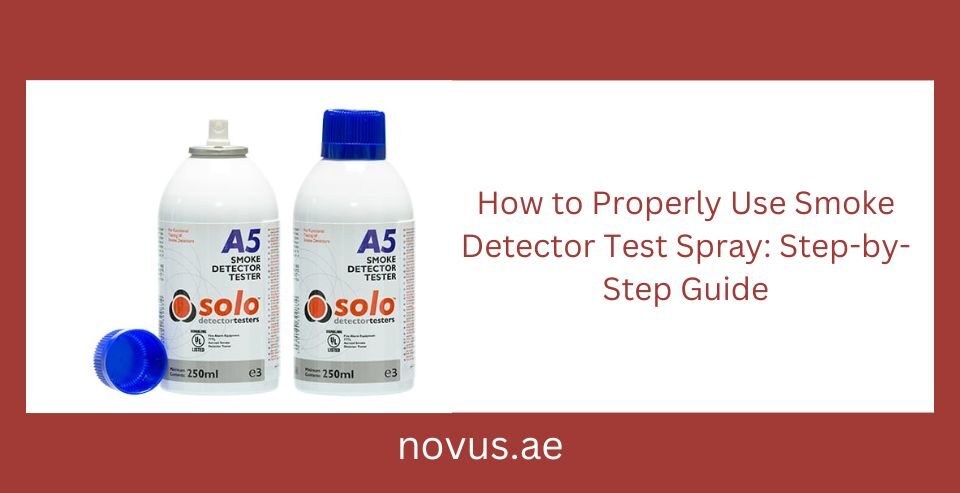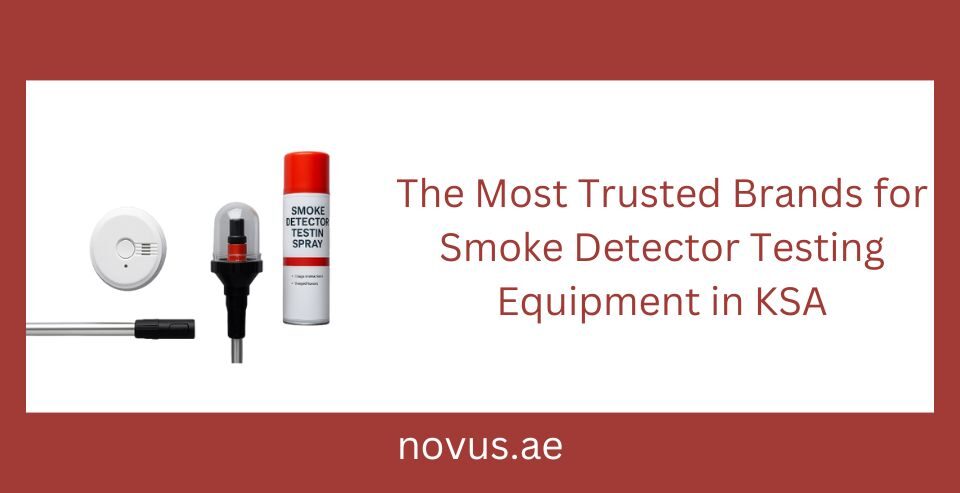
How to Properly Use Smoke Detector Test Spray: Step-by-Step Guide
September 6, 2025
The Complete Buyer’s Guide to Solo 461 Heat Detector Tester in KSA
September 8, 2025When it comes to fire safety, testing smoke detectors is just as important as installing them. Without regular testing, even the best devices may fail during emergencies. Two popular methods have emerged in the industry: Smoke Detector Test Spray and smoke capsules.
Both simulate smoke particles to trigger the detector, but they differ in convenience, accuracy, and long-term effectiveness. Whether you’re a building manager, safety officer, or facility maintenance provider, knowing which method works better can make a big difference in ensuring compliance and safety.
In this article, we’ll compare spray test smoke detector solutions and smoke capsules to help you decide which is right for your needs.
Understanding Smoke Detector Test Spray
Smoke Detector Test Spray is one of the most widely used tools in a fire alarm testing system. These aerosol products release particles similar to smoke, activating the detector’s sensors in a safe and controlled manner.
Benefits of Test Spray:
- Easy to use and portable
- Compatible with most detectors
- Provides fast and reliable results
- Affordable for routine checks
Tools like the Solo 365 smoke detector tester and the smoke detector tester aerosol are designed for professionals who require consistent performance.
What Are Smoke Capsules?
Smoke capsules are small cartridges that release smoke-like vapor when activated. They’re typically inserted into a special holder or applicator, placed near the detector, and ignited or triggered to release test smoke.
Benefits of Smoke Capsules:
- Long shelf life compared to aerosols
- Less residue on detectors
- Consistent output per capsule
However, they often require specialized holders and may not be as convenient as an aerosol spray for smoke detector testing.
Smoke Detector Test Spray vs. Smoke Capsules: Key Differences
1. Ease of Use
- Test Spray: Simple to apply with short bursts under the detector.
- Capsules: Require setup and sometimes special applicators.
2. Accuracy
Both simulate smoke effectively, but sprays like the Solo 365 smoke detector tester provide more consistent coverage for detectors in high ceilings or tricky areas.
3. Cost
- Test Spray: Cost-effective for frequent testing.
- Capsules: More expensive, but a longer shelf life can offset costs for low-frequency testing.
4. Maintenance
Sprays may leave a slight residue over time if misused, while capsules produce cleaner vapor.
5. Portability
Sprays win in this category, as they can be easily carried by technicians in any toolkit.
Which Works Better?
For most facilities, a regular fire alarm testing system is the preferred choice due to its affordability, portability, and ease of use. Large organizations or specialized industries may still choose capsules for specific compliance needs or residue-sensitive environments.
The best approach often depends on:
- Testing frequency
- Number of detectors
- Compliance standards in your region (such as in KSA and GCC markets)
Best Practices for Reliable Testing
- Always follow the manufacturer’s instructions, whether using sprays or capsules.
- Notify building occupants before testing to avoid panic.
- Document every test as part of your safety compliance routine.
- For larger facilities, consider hiring a professional team equipped with smoke detector testers and advanced tools.
Conclusion
When comparing Smoke Detector Test Spray vs. Smoke Capsules, sprays remain the more practical solution for most businesses, homeowners, and safety teams. They are cost-effective, portable, and supported by professional-grade tools like the Solo 365 smoke detector tester.
Capsules may still play a role in specialized industries, but for everyday fire alarm testing services, sprays are the go-to option for reliability and efficiency.
More Resources:





